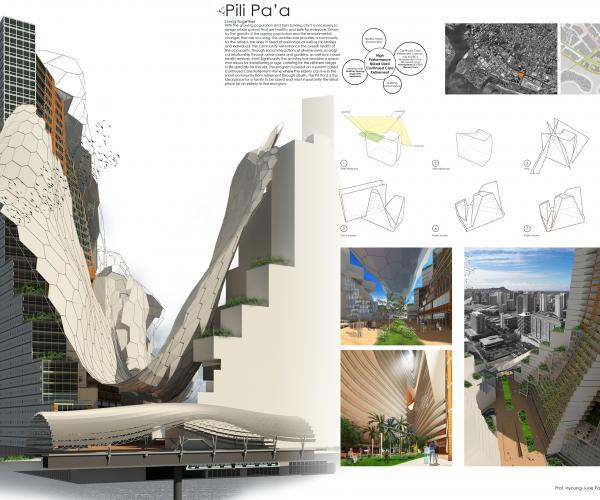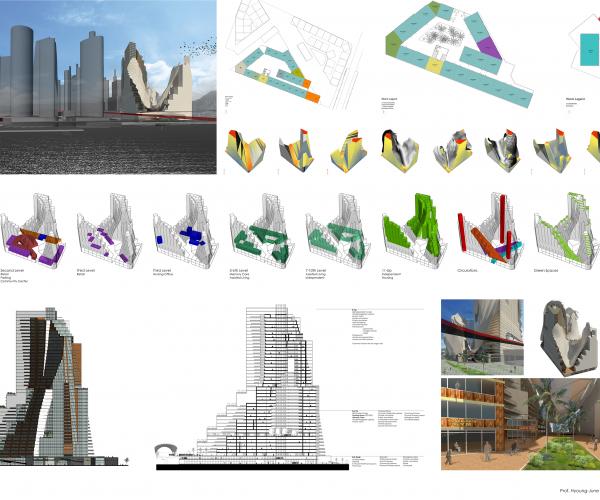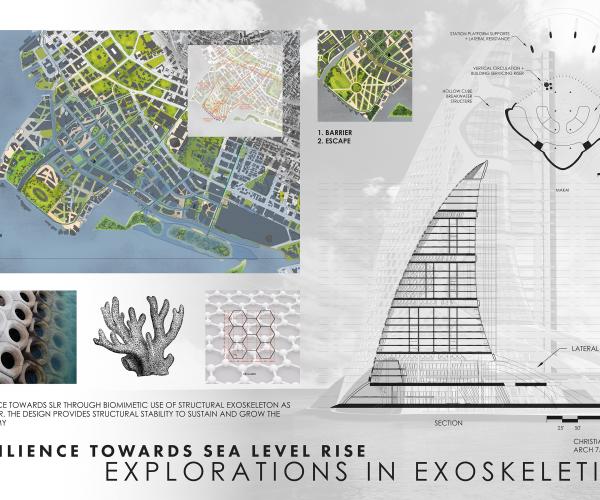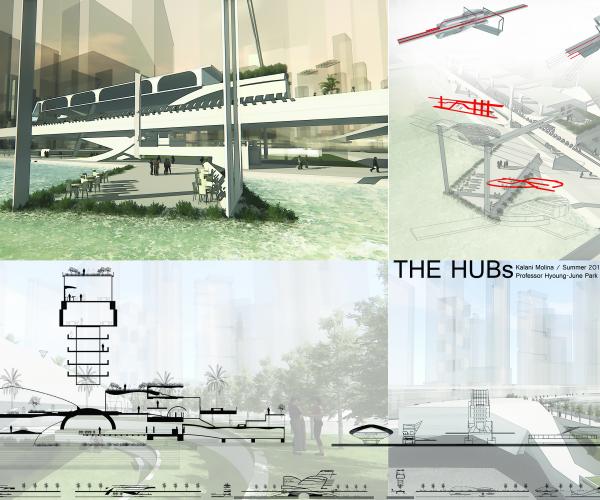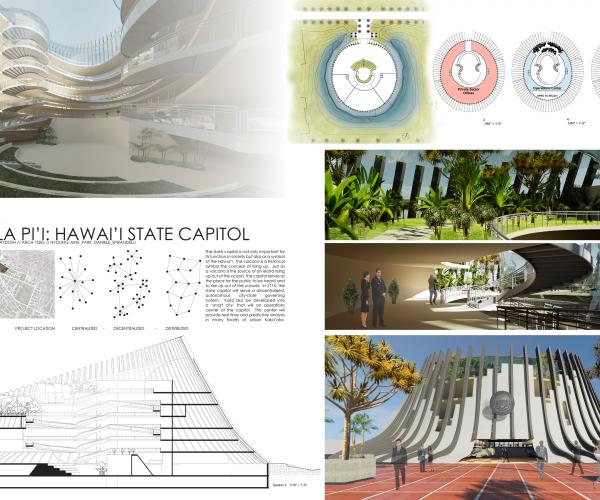DESIGN RESEARCH STUDIO: RESILIENT FUTURE(S) OF HONOLULU
: Graduate Level
Urban design focused on investigating social, cultural, political, and technological factors; study of historical precedents, building/block typology, circulation, infrastructure, and context response. (C) China; (G) Global. A-F only. Graduate standing only.
DETAILS
- Hyoung-June Park & Student Works
- Completed
- School of Architecture
- University of Hawaii at Manoa
DESCRIPTION
Architects have a long history of assuming the role of visionaries in imagining the future setting for their building designs. This architectural visioning is done in the artistic realm without the benefit of future studies. These futuristic designs while interesting and creative are often off the mark and do not provide useful future buildings as proven in time. The more cities develop, the greater their exposure to upcoming changes in governance, the environment, energy use, economy, population, technology and culture increases.
Urban settlements feature various impacts of the changes. Urbanization and urban-led globalization demand more attention on strengthening urban resilience to these impacts. Hawai'i is especially sensitive to volatility of possible futures and needs to take on the urban resilience. Alternate futures of an urban settlement in Hawai'i are interrogated in the process of 1) identifying possible vulnerabilities resulting in unforeseen challenges & risks, and 2) establishing urban capacity to take action for reducing the vulnerabilities.
Arch 750G Design Research Studio is to offer an opportunity for students to 1) build up theoretical frameworks on alternate futures of an urban settlement in Hawaii, and 2) make practical engagement in the process of design decision making on the futures with developing an optimized architectural solution. This Design Research Studio is a hybrid method, a colloquium module and practical engagement module, for developing substantive theoretical understanding and design strategies in decision-making process of alternate futures in Hawai’i. It provides new route assumptions on urban resilience issues with introducing its evolutionary paradigm (robustness, recovery, and adaptation) and underlying regional practices.
Students are expected to integrate emerging scientific knowledge and instrumental vocabularies on resilience of natural and human systems with the planning, design, engineering, and management of the alternate futures within this interdisciplinary setting, a part of Doctor of Architecture Program curriculum in the school of architecture at the University of Hawai’i at Manoa.
Selected Student Works: Mike Poscablo, Christian Simafranca, Kalani Molina, Chris Gaydosh
Urban settlements feature various impacts of the changes. Urbanization and urban-led globalization demand more attention on strengthening urban resilience to these impacts. Hawai'i is especially sensitive to volatility of possible futures and needs to take on the urban resilience. Alternate futures of an urban settlement in Hawai'i are interrogated in the process of 1) identifying possible vulnerabilities resulting in unforeseen challenges & risks, and 2) establishing urban capacity to take action for reducing the vulnerabilities.
Arch 750G Design Research Studio is to offer an opportunity for students to 1) build up theoretical frameworks on alternate futures of an urban settlement in Hawaii, and 2) make practical engagement in the process of design decision making on the futures with developing an optimized architectural solution. This Design Research Studio is a hybrid method, a colloquium module and practical engagement module, for developing substantive theoretical understanding and design strategies in decision-making process of alternate futures in Hawai’i. It provides new route assumptions on urban resilience issues with introducing its evolutionary paradigm (robustness, recovery, and adaptation) and underlying regional practices.
Students are expected to integrate emerging scientific knowledge and instrumental vocabularies on resilience of natural and human systems with the planning, design, engineering, and management of the alternate futures within this interdisciplinary setting, a part of Doctor of Architecture Program curriculum in the school of architecture at the University of Hawai’i at Manoa.
Selected Student Works: Mike Poscablo, Christian Simafranca, Kalani Molina, Chris Gaydosh
Our understanding of where we live
is not so philosophical but rather pragmatic
Understanding urban environment with quantifiable measures has been the source of debates
Well then becomes the one of heated discussions … now possiblly the one of main trends

